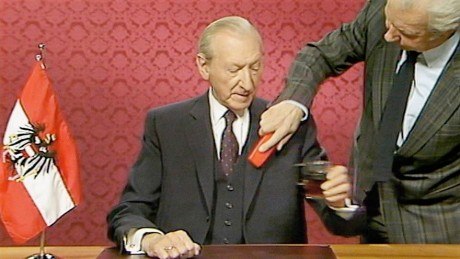


DOK Leipzig 2018

Demand the Impossible! is the motto of this year’s edition of DOK Leipzig (October 29 – November 4). In 2018, the festival’s Special Programmes will revolve around films that seek to bring about changes or depict processes of transformation, with the focus firmly on the emancipatory power of art. “We see the festival motto as a compass that helped us create our Special Programmes. The phrase Demand the Impossible! served as an inspiration to us when working on the conception of this year’s edition”, explained programmer Ralph Eue.
The motto is also a reference to this year’s Retrospective, which is dedicated to the years surrounding 1968. 50 years on, the Special Programme traces out that era’s virulent urge for aesthetic and social renewal and gathers together films from half a century that centre on 1968. “1968” is to be understood here as a symbol of pioneering events whose effect is still felt today. The Retrospective doesn’t approach these radical changes in society and aesthetics from the focal point of the protests themselves, but rather from the margins, with the idea being to consider the brittleness of existing orders in many different places at the time that eventually carried social upheaval into everyday life.
This year’s Homage honours filmmaker Ruth Beckermann (“The Dreamed Ones”), who is regarded as one of the founding members of Austria’s independent film scene and
received the Documentary Award at the Berlinale a few weeks ago for her film “The Waldheim Waltz” (PHOTO). Her formally diverse oeuvre takes in both road movies and biographical films as well as far-reaching film essays. While the focus of her attention is on the Jewish history of Austria on the one hand, the sheer breath of her political and artistic interests extends far beyond her country’s borders at the same time.
To coincide with the 100th anniversary of the Baltic republics, the Country Focus of this year’s DOK Leipzig turns its attention to Lithuania and examines the cinema of a country which defied Soviet dogma at an early stage. Frequently by drawing on subtle cinematic devices or playful approaches, Lithuanian film redefined the concept of political cinema, revealing the poetic and emancipatory power of images and questioning the political system in the process. As in previous years, DOK Leipzig also presents an Animated Film Special Programme linked to the festival motto, which shows that animation is able to make things never seen before visible and create entire new realities.
The DEFA Matinee section presents a part of the cinematography of the former East Germany that is largely unknown: early student films from the HFF “Konrad Wolf” (today the Filmuniversität Babelsberg “Konrad Wolf”), which includes early works by such renowned directors as Thomas Heise or Helke Misselwitz. One year after its big anniversary, the festival’s 61st edition is also creating a new series, whereby films previously shown at the festival provide an opportunity to look back at the history of DOK Leipzig…
https://www.dok-leipzig.de/en/dok/presse/pressemitteilungen/2018/022018